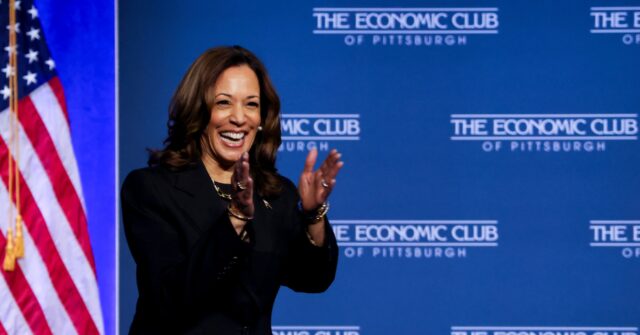The political landscape in the United States is marked by intense debate over economic performance and the implications for the upcoming elections, particularly as Vice President Kamala Harris positions herself for potential re-election. A significant critique has emerged from various conservative perspectives regarding how outlets like Politico portray the current state of the economy under the Biden-Harris administration. The headline from Politico that claims “Harris is riding a dream economy into the election” has been met with substantial mockery and skepticism, with critics arguing that such characterizations are misleading.
Critics emphasize that while certain economic indicators, such as a reported 2.4% inflation rate and a 4.1% unemployment rate, appear promising, they fail to reflect the broader economic difficulties faced by many Americans. For instance, the drastic increases in food prices, electricity, gasoline, and auto insurance since the start of Biden’s term illustrate a stark contrast to the allegedly positive economic narrative. The notion that these statistics represent a “dream economy” is dismissed by those arguing that families are struggling to afford essential goods, undermining the notion of economic prosperity.
Moreover, the narrative surrounding rising gas prices — with averages hitting $3.21 per gallon — and the implications of broader economic policies is explored. Critics assert that these figures, while presented positively by media outlets, do not capture the hardships that families must navigate daily. The escalation of housing and mortgage prices due to leftist policies and environmental regulations is another cited concern, contributing to a situation where true affluence feels inaccessible to many.
Further complicating this discussion is the contention that the influx of immigrants at the southern border has exacerbated the economic strain. The integration of millions of individuals into the labor market is argued to depress wages and increase competition for affordable housing. This dynamic is accused of benefiting the government through welfare programs, which purportedly enables economic displacement for native-born workers, positioning them at a disadvantage.
Critics lament that media outlets, like Politico, selectively choose metrics that suit their narrative while overlooking the realities faced by average Americans. The emphasis on a “dream economy” is viewed as a misguided attempt to distract voters from observable economic hardships. This perspective suggests that there is a disconnect between the lived realities of everyday citizens and the portrayal of economic health by major media outlets.
In the broader dialogue about economic policies and political accountability, there is an underlying critique directed at the media’s role in shaping public perception. The sentiment that traditional media has lost credibility among certain voter bases aligns with a call for greater transparency and engagement in real discussions about the economic and social challenges Americans face today. This critical outlook emphasizes the need for a more nuanced analysis of what constitutes a healthy economy, recognizing that numbers alone do not capture the complexities of financial well-being for the broader population.

